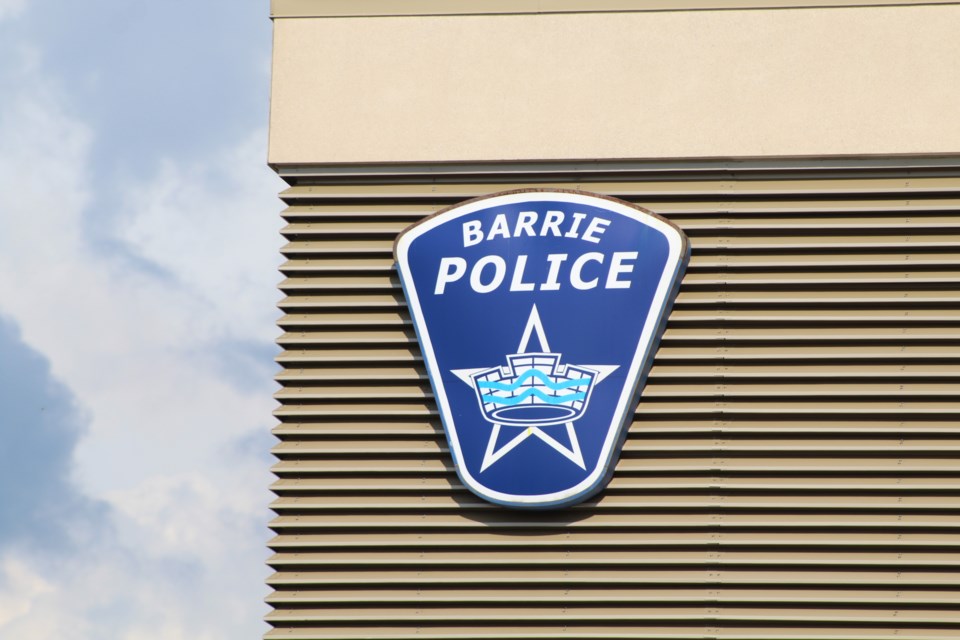Editor's note: The following story has been updated after a discepancy was found in original ministry announcement. BarrieToday regrets any confusion this may have caused.
The province has come up with more than $1.8 million in grant funding for Barrie police to cover programs related to research, crisis outreach and cybercrimes over a three-year period.
And it couldn't come at a better time, as many police departments, including Barrie's, have raised concerns about reductions to provincial grants in recent weeks.
On Wednesday, the province announced several revenue streams for police departments in Simcoe County.
From 2019 to 2022, the provincial government says it will spend approximately $181 million to support more than 100 local-level projects across Ontario, and $14 million for 18 provincewide projects.
The Community Safety and Policing grant program operates on a three-year cycle and provides police with the resources needed to combat crime and keep communities safe.
In Barrie, the funding includes $723,335 for front-line and evidence-based response. City police will partner with academics from Western University to use research to develop an evidence-based police unit with the purpose of deploying front-line officers more effectively, when and where they are needed most.
Barrie police communications co-ordinator Peter Leon said the funding will also allow for additional studies and partnerships with the goal of seeing the city's police department become a leader in the evolving area of evidence-based policing.
"It is future studies which will help to guide policing in the days and years to come with the required facts to substantiate and support them," Leon told BarrieToday.
There's also $442,507 in funding for the crisis outreach and support team (COAST), as well as the fight against cybercrime.
"This will allow us to enhance our current relationship with the Canadian Mental Health Association to address the mental-health needs of the community," said Leon, who added Barrie police and the CMHA are working together to identify people who require assistance or services and then direct them to the support systems they require.
Leon said this will also provide accessibility to mental-health expertise for front-line officers, because "many of the citizens experiencing mental-health issues are not in contact with CMHA or other services," he said.
COAST will provide the conduit for individuals to obtain support that's required.
The final component is $661,385 in funding that will go to the technological crimes unit to support cyber investigations and extraction, as well as analysis of digital evidence.
"Grant funding will help maintain this unit’s capability to support front-line investigators and enhance the ability of the Barrie Police Service to effectively investigate cybercrime occurrences," Leon said.
Enhancements will include training and purchasing of associated equipment required for effective cybercrime investigations that will allow city police to "efficiently combat crime and promote the ongoing focus related to maintaining community safety in an ever-evolving area," Leon said.
Elsewhere around Simcoe County, police will receive just over $1.4 million for a variety of programs.
South Simcoe police will get $720,000 for its community mobilization and engagement unit, a pilot program established in 2017 aimed at increasing community safety and well-being. Funding will help turn the unit into a fully operational program.
In addition, South Simcoe police's crisis outreach and support team (COAST) — a program also focused on working with local mental-health agencies to respond to mental-health and crisis calls for service — will be expanded with the addition of a specially trained officer.
Both programs will also be enhanced to focus on youth-at-risk and addressing opioid abuse in the community.
Orillia OPP will receive $225,000 for its mental-health response unit, which engages individuals, families and support systems in response to mental health-related issues. Funding will support the deployment of an OPP constable to the unit, which will also explore further partnerships with officials in the mental-health community.
Collingwood OPP will get $67,500 for a school resource officer, which is a uniformed officer responsible for the town's two high schools. The position has existed for two decades. The officer works closely with staff and community support groups to ensure the safety and security of students.
In the Penetanguishene-Midland area, police will get $157,500 to hire an officer on the North Simcoe Crisis Management and Response Team. The goal is to reach at-risk individuals before they reach a crisis stage, ensuring proactive involvement by police and health-care professionals. The officer will co-ordinate with mental-health service providers and community organizations, and conduct an evaluation of the program.
Nottawasaga OPP, which provides policing in Essa Township, New Tecumseth and Adjala-Tosorontio Township, will receive $236,250 for its community mobilization and engagement unit to address priorities in the community. This includes funding to support the Stronger Together program by providing a mental-health support team and "social navigator" to help the unit implement local strategies to address mental-health and youth issues.



